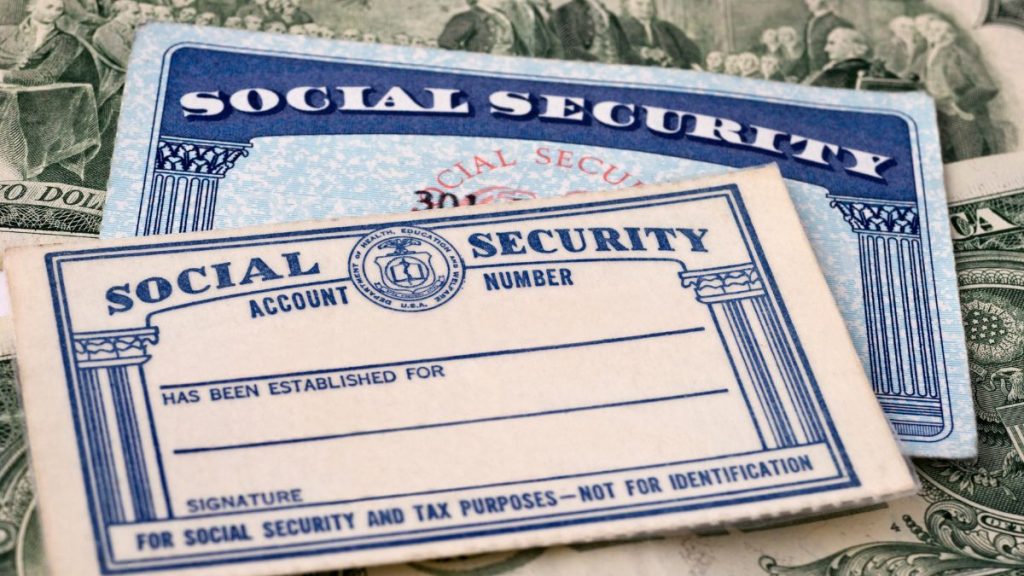Losing a spouse is a difficult time, and financial concerns often follow closely behind. One of the most common questions survivors ask is whether they can collect both their Social Security benefit and their deceased spouse’s benefit.
This article will help clarify what you can expect when it comes to Social Security survivor benefits, how much you can receive, and what steps to take to ensure you get the benefits you’re entitled to.
Can I Collect My Deceased Spouse’s Social Security and My Own?
Unfortunately, you cannot collect both your Social Security benefit and your spouse’s at the same time. Instead, Social Security allows you to collect the higher of the two benefits: either your own retirement benefit or your spouse’s survivor benefit.

If your deceased spouse’s Social Security benefit is higher than your own, you will receive the higher amount. The key here is that Social Security doesn’t combine the two benefits. In most cases, the surviving spouse will receive 100% of the deceased spouse’s benefit if they have reached full retirement age (FRA).
What Are Survivor Benefits?
Survivor benefits are a form of Social Security provided to widows, widowers, and in some cases, children, after the death of a Social Security-covered worker. These benefits can be up to 100% of the deceased spouse’s benefit depending on various factors such as age and whether you care for children under 16.
To qualify for survivor benefits, the deceased must have worked long enough under Social Security to qualify for benefits. The amount you receive depends on several factors:
- Age: If you claim survivor benefits before your FRA, the benefit amount will be reduced. You can start claiming at age 60, or as early as age 50 if you are disabled.
- Full Retirement Age (FRA): If you wait until your FRA, you can receive 100% of your late spouse’s benefit.
- Disability: A disabled widow or widower can start receiving benefits as early as age 50, but the amount will be 71.5% of the deceased’s benefit.
Social Security Survivor Benefit Payout Breakdown
| Age/Condition | Percentage of Deceased’s Benefit |
|---|---|
| At Full Retirement Age (FRA) | 100% |
| Between 60 and FRA | 71.5% to 99% |
| Disabled (age 50-59) | 71.5% |
| With children under 16 | 75% |
Key Factors That Affect Your Social Security Benefits

1. Working While Receiving Benefits
If you are under full retirement age and continue to work while receiving survivor benefits, your earnings could reduce the amount you receive.
For every $2 you earn above the annual limit (which was $21,240 in 2023), your benefits will be reduced by $1 until you reach FRA. After reaching FRA, there is no penalty for earning income while receiving survivor benefits.
2. Children and Family Maximums
If you have children under 16, they may also be eligible to receive up to 75% of the deceased parent’s benefit. However, the family maximum applies, limiting the total benefits a family can receive to between 150% and 180% of the deceased’s benefit.
3. Divorced Spouses
If you were married for at least 10 years and are now divorced, you may still be eligible for survivor benefits on your ex-spouse’s record, as long as you did not remarry before age 60 (or 50 if disabled). Remarrying after 60 will not affect your eligibility for survivor benefits.
Conclusion
If your spouse passes away, you may be eligible for Social Security survivor benefits, which could replace your own retirement benefit if your spouse’s benefit is higher.
While you cannot collect both benefits at once, planning and understanding the rules surrounding survivor benefits can help maximize your income.
Knowing the right time to claim, understanding how working affects your benefits, and exploring options as a divorced spouse are crucial in making the most out of Social Security survivor benefits.
FAQs
1. Can I collect both my Social Security and my spouse’s?
No, Social Security will only pay the higher of the two benefits—either your own or your spouse’s survivor benefit. You cannot collect both at the same time.
2. When can I apply for survivor benefits?
You can apply for survivor benefits as early as age 60. If you are disabled, you can apply as early as age 50. If you have children under 16, you may also be eligible at any age.
3. How much will I receive in survivor benefits?
The amount depends on when you apply and your age. If you wait until your FRA, you can receive 100% of your late spouse’s benefit. Claiming earlier will reduce the amount.
4. Can a divorced spouse receive survivor benefits?
Yes, if the marriage lasted at least 10 years and you did not remarry before age 60 (or 50 if disabled), you may be eligible for survivor benefits.
5. How do I apply for survivor benefits?
You can apply for survivor benefits by contacting the Social Security Administration (SSA) directly via phone or by visiting your local SSA office. It is recommended to make an appointment.
References
- Social Security Administration, “Survivor Benefits Guide,” 2024.
- Retirable, “What Happens to Your Social Security Benefit When Your Spouse Dies?”
- AARP, “Can I Collect My Deceased Spouse’s Social Security and My Own?”
- SimplyWise, “If My Spouse Dies, Do I Get His Social Security and Mine?”
















